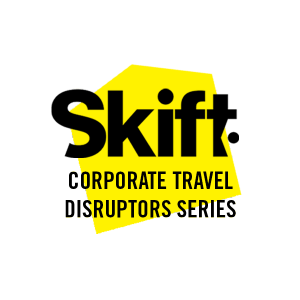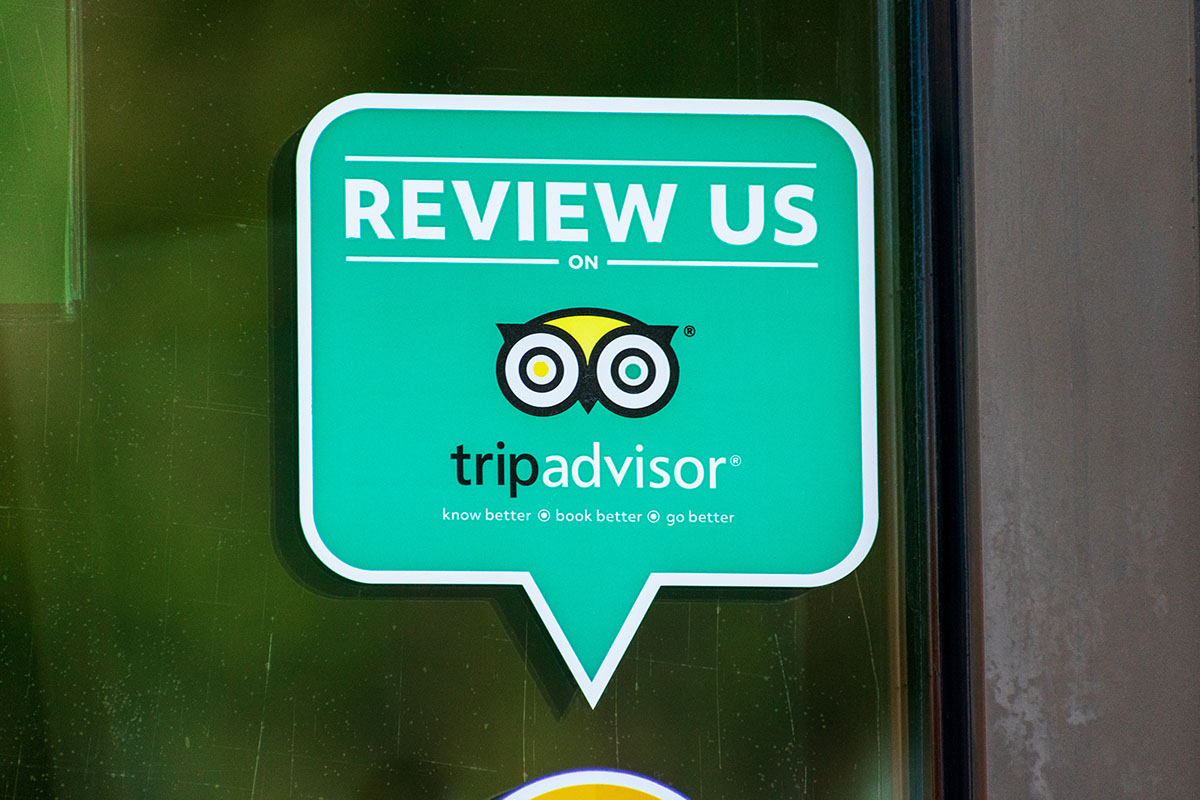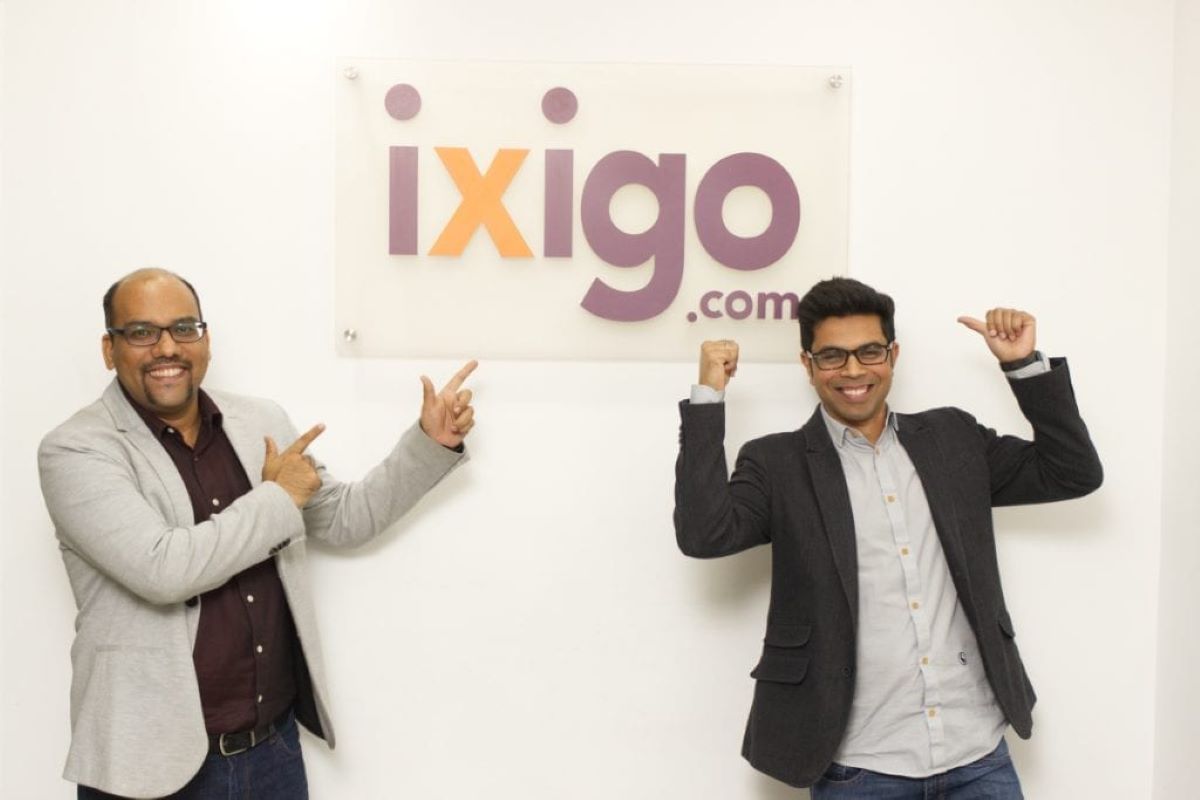Concur Wants to Deliver a Consumer-Grade Experience to Business Travelers

Skift Take
 Editor’s Note: A year ago, Skift expanded its coverage of corporate travel with more frequent stories and a dedicated newsletter. The Corporate Travel Innovation Report focuses on the future of corporate travel by examining the big fault lines of disruption for travel managers and buyers, the innovations emerging from the sector, and the changing business traveler habits that are upending how corporate travel is packaged, bought, and sold.
Editor’s Note: A year ago, Skift expanded its coverage of corporate travel with more frequent stories and a dedicated newsletter. The Corporate Travel Innovation Report focuses on the future of corporate travel by examining the big fault lines of disruption for travel managers and buyers, the innovations emerging from the sector, and the changing business traveler habits that are upending how corporate travel is packaged, bought, and sold.
In this series of stories and one-on-one interviews, we explore some of the latest trends, technology, and external forces causing corporate travel to evolve. You can read the rest of the articles in this series here.
Subscribe to the Corporate Travel Innovation Report
Mike Eberhard jokes that his second home is “usually a seat assignment.”
As a frequent traveler and longtime employee of Concur, the travel and expense management giant, Eberhard has plenty of ideas about how his product can evolve to make the process of booking and expensing travel easier for users.
“I’ve traveled between 250,000 and 350,000 miles a year, so I definitely exercise and push the boundaries of our own product and understand what it’s like to be a traveler,” he said. “I try and bring that back into our vision as much as I can.”
After working for Concur, a unit of SAP, since 2003, Eberhard was named president of the company late last year. He spoke to Skift recently about priorities and challenges, the recent acquisition of Hipmunk, and the need to keep in touch with users.
Skift: You’ve been in the job for a few months now. What are your biggest priorities for 2017 but also looking to the slightly longer term?
Eberhard: From an industry standpoint, corporate travel is a $1.2 trillion industry today, and I think GBTA projects it’ll be about $1.6 trillion in 2020. For Concur to be successful, it’s important that we not only focus on meeting the needs of businesses and travelers today but we also play the role of anticipating the needs of the business and the travelers tomorrow. Our top priority is our customer. The key challenges for our customer right now is trying to ensure that what you’re delivering from a corporate solution is something that has consumer-grade experience for their travelers. We have a tremendous amount of passion about delivering consumer-grade experience. Consumerization is driving rapid massive evolution of the corporate travel industry today.
In the future, I think, successful business applications will be in the ability to balance consumer-grade experiences and the needs of the corporation. We’re focused on delivering user-friendly, simple experiences to their business. I think the other is part of the consumerization is the fact that the number of apps that the employee gets to utilize throughout the course of their role, whether they’re traveling or doing other aspects of their role, is tremendous. Just search travel inside of your mobile app store and just see how many applications there are out there.
Being able to recognize that this is the new world today and provide interoperability developing micro-services in the capabilities that you’re delivering and allow [application program interface] interconnectivity across different applications is key. I think, as we look forward, these are some of the highest priorities, making sure that we give a consumer-grade experience and those that manage travel programs, or…try to manage spend, have an opportunity to provide a corporate solution that works for today’s world.
Skift: What would a consumer-grade experience be for a user of Concur’s products? How does that translate to me if that’s the technology that I’m using? I don’t know if, necessarily, that’s just simply with tracking and filing expenses or itinerary management or booking tools, or all of the above. How do you really make that consumer-grade experience?
Eberhard: It’s really all of the above. If I think about some of the more common transactions and things that happen when you’re on a business trip, certainly, it may be hailing a ride, right? Being able to utilize a solution like Uber and know that that information is going to go directly into your application and have a link between your Concur account and your Uber and the payment mechanism. Just as well, you may be traveling to China so you’re hailing Didi in that scenario or, in another scenario, you’re traveling in Tokyo and you’re utilizing trains. Your IC card that you keep in your wallet that has pre-loaded funds that has allowed you to go back and forth, you have to actually bring that into the system on a transaction to transaction basis. Providing the ability for that to automatically, with a swipe of that card, come into Concur.
It’s meeting the customer where they are, anywhere around the world, with the practices that they have. I think the other thing that it means is simplifying the number of steps that it takes. Thinking about it from most corporate applications, if you think through what you may need to do to, let’s say, book a trip, from a corporate standpoint, there may be 15 or 20 process steps that go into your policies so that you know that the traveler doesn’t have to know everything about the policy, that it’s able to show it to them and the can make the right decision for themselves. How do you simplify that down to two? How do you take almost all of the steps out? Whether that’s leveraging [artificial intelligence], or other technology, how do you ring that to a really simply experience? Those are the things we’re talking about with getting consumer-grade because when you do go to your consumer applications, that’s what you become accustomed to.
Skift: Those examples that you gave, are those things that are already happening or those are things that are on your to do list?
Eberhard: Starbucks, today, is the most common restaurant location being utilized today. It’s the top location for out of office meetings and a third of the transactions are actually using someone’s Starbucks account, whether it’s their card or their app. That’s automated into Concur. Uber has grown significantly. If you look at the transactions between, just look at last year, it grew 230 percent over the previous year. Those are transactions that come into Concur with accounts. These are things that are happening today.
Skift: What are the real challenges for you to further that and to bring that consumer- grade experience beyond Uber and Starbucks but, you know, much more broadly in meeting those customers where they’re at?
Eberhard: Yeah, I think one of the biggest challenges is globalization. To travel globally is to travel differently. Understanding that you really can’t solve for one scenario in one market and you need to, basically, invest in building a platform for your application. We’ve had years of investing in developing an API approach within our applications in not just allowing ourselves to build against it but to go out to the market and build against it…. There are more than 45 million users now and so when you have that kind of population, many of which who are using Concur on their mobile, it allows us to recruit the rest of the ecosystem to want to integrate with Concur.
Skift: How is TripLink, your open booking platform, going to continue to evolve? I feel like, in the past, we’ve had stories where, maybe, companies look at Concur as an encourager of scofflaws, like, encouraging people to book out of policy. Do you think there’s still that mindset or is there more acceptance and a greater move toward more flexibility in booking?
Eberhard: This has been an evolution. I spent a lot of time with our customers and I think if you look at how our customers who are using our solutions look at us, we’re actually the ones trying to help them ensure that what’s happening is within their policy. What we’re trying to do is to recognize that the traditional method of managing a travel program and the tools that you have, [if] a booking tool and an agency is the only approach that you have, it does satisfy a significant portion of the travel that’s out there but it also misses a significant portion….
Things are changing, there’s no slowing down of the marketing to our travelers directly from suppliers and other avenues. In the event that this can remain in policy and be significantly advantageous for our travelers, as long as we can bring this together, they needed someone’s help to act as a platform and bring the different parties together so that it’s not rogue. That’s what we’ve been doing. Now, there’s 8,000 customers on TripLink and over 4 million users of TripLink. It is working for a lot of our customers and doing exactly what they want it to do.
Skift: What else do you want it to be able to do? Or how do you want it to keep evolving?
Eberhard: I think this is still an evolution. To me, for example, the ability to link your Concur profile to the supplier that you may use directly, making that as easy as possible. We’ve invested a lot of time and resources into making that very simple to enable within the Concur site and link accounts. We’re also really driving to be able to make that data actionable both for the travel manager and the folks who manage that program. There’s a lot of work to do and it’s heavy lifting, it’s working with the suppliers in the ecosystem, which has been a lot of fun.
Skift: You guys announced the acquisition of Hipmunk in September and I think that was final in October. What are your plans near and long term for integrating that — or whatever else you hope to do with it? What’s on the agenda?
Eberhard: Yeah, this has been fantastic for us. I think when I was talking about consumer- grade experiences, one of the best examples is Hipmunk. It’s a beloved solution for travel consumers that are out there. How do you take all the learnings and technology that’s there for a true consumer-grade experience and begin to integrate that into the solutions that you provide for your corporate customers? That was driving our interest in ultimate acquisition of Hipmunk.
I think the technology is, probably, what’s most exciting. I mean, if you look at how they’re using AI and their use of travel bots. We believe Hello Hipmunk is the most used travel bot in the United States. It’s a natural language processing inside of Hello Hipmunk that is, you know, an AI-powered travel search. It’s an opportunity for us to take a look at that and say, ‘Wow, how do you combine that level of ease with saying we want to be able to make in- policy travel decisions that simple?” Those are the types of opportunities that we have with Hello Hipmunk and it’s a fantastic business, an incredibly creative team. It’s infusion has allowed us to continue, like we did with the acquisition of TripIt, to focus on consumer- grade experience.
Skift: I was going to ask you about AI, mobile advances, and also voice. Those are three of the things that we hear almost no matter who we’re talking to in travel; those are three areas that everybody is trying to move forward on. Is Hipmunk your way into, maybe, the AI part of that?
Eberhard: Hipmunk certainly brings a lot along with it from fantastic patented technology and capabilities that we bring into our applications. That said, there’s a significant amount of AI work that we’ve been incorporating within our current solution today. I think, probably, number one is around travel search. I think that’s the most commonly talked about. For us to be able to serve up the right answers for a travel search that isn’t just based on current parameters but takes into consideration previous behavior is very powerful.
AI, for us, is a technology that we leverage across our platform. It’s not just in travel search, it’s also in the ability to recognize and digitize receipts. If you think through the expense process and how you look for trends of spending, you look at some of the [Foreign Corrupt Practices Act] and how do you enable, some AI, to be able to determine whether you’ve got risks in some of the transactions that are out there and how you notify employees before they actually spend in those types of areas.
It is a technology that allows us to leverage across our whole platform and that is what we’re doing today. I think voice is a great opportunity…One of the ways that we believe the future is moving is not just to leverage voice but also to leverage where the customer is living today. For example, there was an announcement of our work with integration with Slack using bot technology. For example, you can, within Slack, ask, ‘When is my next business trip?’ or, ‘What time is my flight?’ or, for that matter, ‘Expense breakfast for seven dollars.’ Allow that to create a transaction or work within Concur. Today, we can allow that within voice and we’re going one step further and allowing it to be, for example, if you’re in China, you may live on WeChat. If you’re on a Slack team, you may want to be able to do it within Slack. It’s ensuring we’re meeting our customers where they live.
Skift: What do you think has been the most unexpected or just the biggest disruption or disruptor in corporate travel just over the past year?
Eberhard: That’s a really good question. What I love about travel is the fact that it is so dynamic. It is constantly changing. I think the answer is the dramatic need from our customers to help then take care of their employees. I think that’s the biggest evolution in the last 12 months. It’s become the loudest voice from our customer. Their ability to know where their employees are just isn’t good enough anymore. They’re asking for the ability to actually assist their employees, to be able to check in with their employees, to communicate with their employees. There’s been some great advances for us. I’m going to find a statistic here real quick for you. Last year, Concur issued more than 10 million alerts and messages notifying business travelers of potential risks in the locations they were visiting. The number of users who received notifications grew 10 times last year and is now, in the last 12 months, to 1.3 million users.
Honestly, whether it’s a health crisis, whether it’s civil unrest, whether it’s severe weather, or whether it’s terrorist attacks, the alerts are designed to help business be able to communicate and actually assist their employees in the event of an issue. I think that’s been the loudest need from out customers in the last 12 months come across for us.
Skift: I didn’t even realize that that was a service you provided.
Eberhard: Yes. I think one of the biggest parts of the request is that if the travel behavior is changing and they’re not all using the same traditional channels, then your ability to know where your travelers are becomes much harder. Our customers came to us, I think, largely because we have the ability to see where they are in many more ways than just, maybe, an original itinerary that might have been generated out of a [travel management company].
Then because we interact, because we have millions of mobile users, we have the ability to make sure we can communicate with them. We’re really the best position in the industry to help our customers on this topic and it’s extremely important to me.
I was one of those people. I was literally days away from the tsunami in Japan. I have been ill outside of my own country and I’ve been, unfortunately, in a city when there was civil unrest….I know what it’s like to be at a time zone when most people are asleep and if something happens, I want my employee to be able to help me.
I feel personal about it and, I think, now, in the role that I am in in Concur, I have such a sense of responsibility for our own employees that are all over the world. I want to deliver this technology not just for our customers but here for us.
Subscribe to the Corporate Travel Innovation Report




